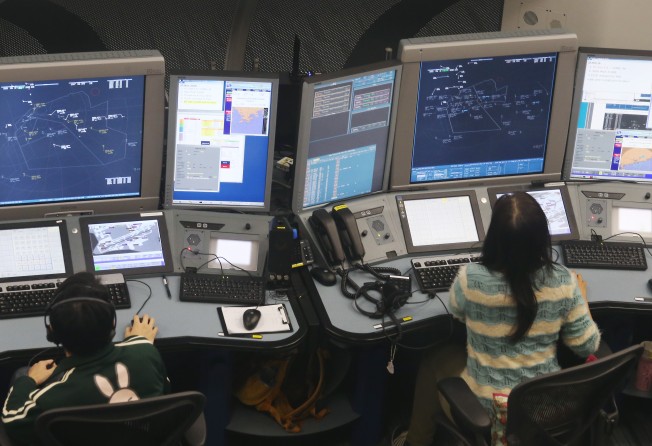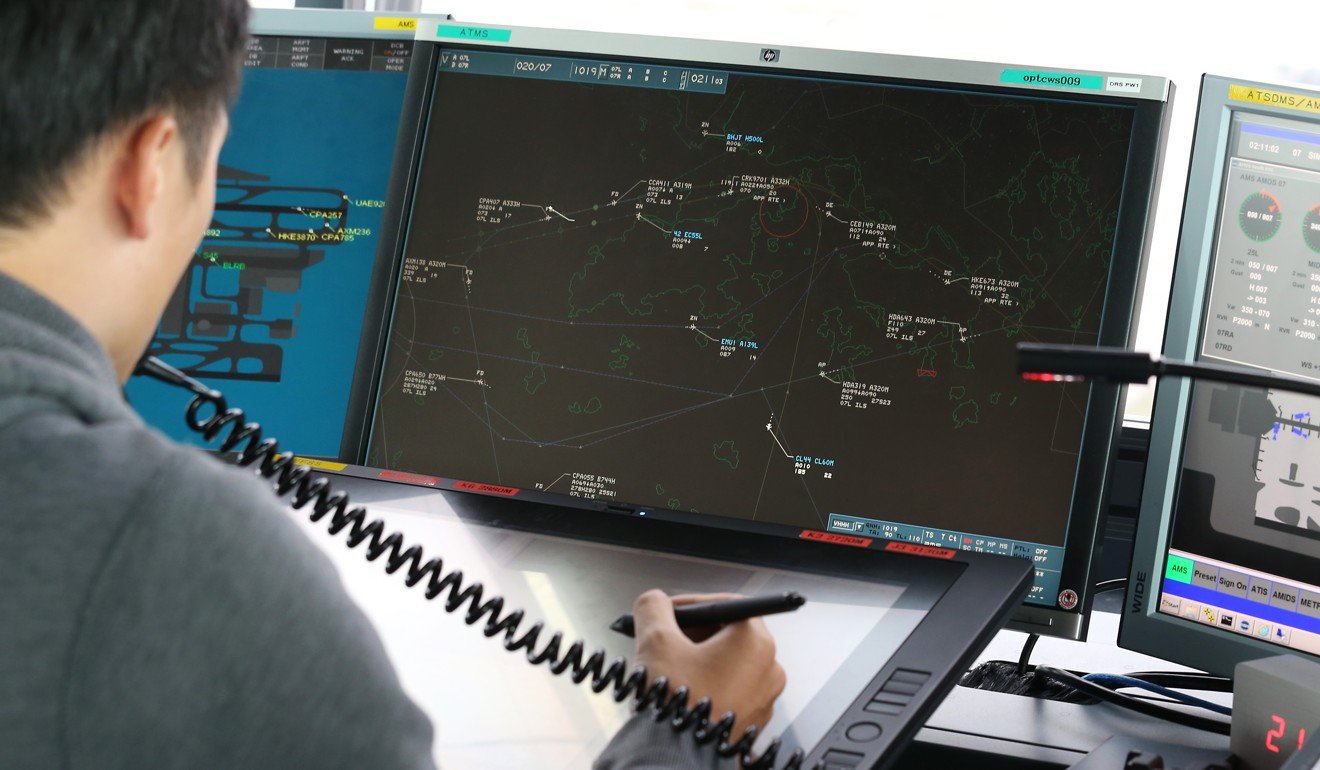Glitch-prone Hong Kong air traffic control system needs regular reboots: report
Computer crash fears mean 53 of 70 workstations are rebooted every two weeks

Aviation experts urged authorities to come up with long-term solutions for Hong Kong’s glitch-prone air traffic control system after it emerged that the set-up required regular reboots.
FactWire news agency revealed in a report on Sunday that 53 of 70 workstations for the new air traffic management system (ATMS) required a reboot every two weeks to prevent sluggish system operations. Manual hourly inspections of its subsystems were also required.
The new ATMS workstations integrate data concerning aviation, surveillance, detection and communication as well as show the situation within the region for air traffic controllers to manage flights.
FactWire obtained a manual about workstation restart schedules for ATMS workstations that was prepared by the Civil Aviation Department for the system’s maintenance staff.
Some workstations had been assigned a weekly restart, it was revealed, initiated from midnight to 7am local time – the least busy period for air traffic.
Three workstations at the air traffic control centre and at least one at the control tower must be restarted daily.
Sources told FactWire the measures were implemented this year to prevent sluggish operations or a “system crash”, adding that such measures were “normally applicable only to systems that are very old and always malfunction, so it is shameful that the new ATMS has to rely on this to operate smoothly”.
Civic Party lawmaker and licenced pilot Jeremy Tam Man-ho told the Post it was “abnormal” for a new system to require regular reboots.
“Of course if [the CAD] needs to resort to such emergency measures to ensure aviation safety, then it has to be done. But they can’t continue on like this forever. They need a long-term solution to tackle the root of the problem,” said Tam, a harsh critic of the new system.
The HK$1.56 billion air traffic control technology, developed by US contractor Raytheon, has been hit with a number of glitches since it became operational last November.
The US firm is expected to implement a software fix this month after the most recent glitch in April when a flight data processor malfunction caused information on eight flights to go missing on radar screens.
Professor Anthony So Man-cho of the Chinese University of Hong Kong told FactWire that he had never heard of the old ATMS or any overseas system employing such regular restart measures.
“I think it isn’t very reasonable,” he said of the reboots. “The measures are quite backwards, requiring a person to stand by and reboot the machine at a specific time. Everyone knows that even computers at home do not require constant reboots.”

FactWire also found that manual “health checks” had to be carried out by maintenance staff hourly for two subsystems incorporated into the new ATMS.
On Sunday night, the CAD said it rebooted the workstations every one to two weeks and that the arrangement followed the contractor’s recommendations
It added that its “regular maintenance procedure” following the example of international cases and actual operations to ensure the system ran safely and smoothly.
The protocol includes “closely monitoring the performances and functions of every subsystem, and carrying [out] all types of inspection and maintenance work regularly for every workstation at the new air traffic control centre and control tower (including a regular restart for workstations and sub-systems)”.
While the department did not state when its new practices commenced, it maintained that flights and aviation safety were unaffected.
Additional reporting by FactWire